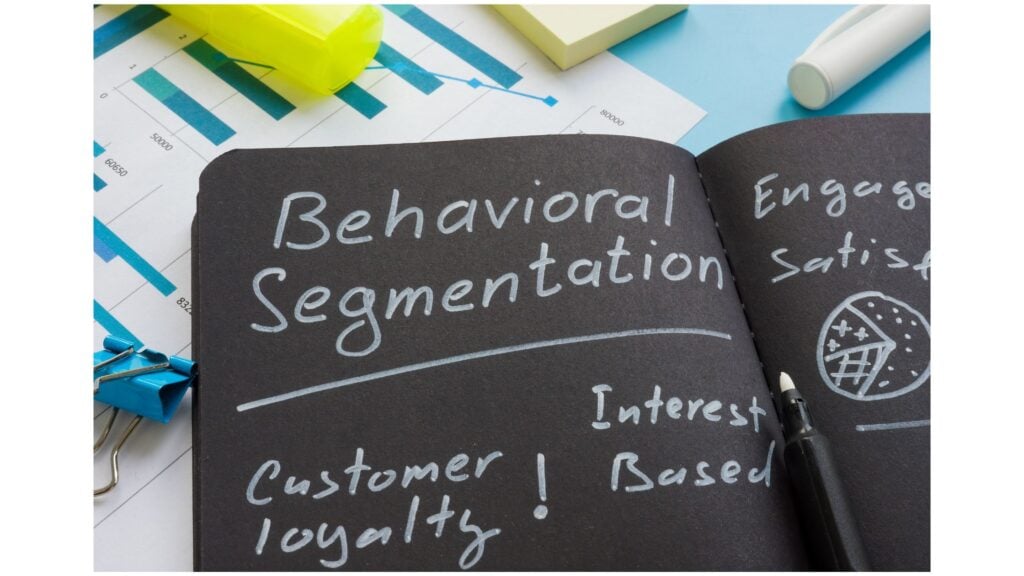Career Transitions: How Starting a New Job Transforms Your Lifestyle
The ripple effect of start a new job
Start a new job is more than exactly a change in how you earn money — it’s a transformation that touch about every aspect of your life. From the moment you accept an offer, a cascade of adjustments begins that reshape your daily routines, social connections, financial situation, and evening your sense of identity.
Whether you’re entered the workforce for the first time, change careers, or plainly move to a new company, the impact on your lifestyle can be profound and sometimes unexpected. Understand these changes can help you navigate this transition more swimmingly and purposely.
Daily routine restructuring
Time management revolution
Perchance the about immediate change when start a job is the complete restructuring of your daily schedule. Your wake hours, meal times, and personal activities must today revolve around your work commitments.
For many, this mean adapts to betimes wake up times, structured lunch breaks, and plan personal errands around work hours. The 9 to 5 schedule( or whatever your particular work hours may be) become the backbone around which all other activities must organize themselves.
This restructuring oftentimes require develop new time management skills. Many new employees find themselves create morning routines that allow them to arrive at work prepare and on time. Evening routines might include prepare for the next workday by select outfits, prepare lunches, or review schedules.
Commuting considerations
For those who work outside their homes, commute become a significant new lifestyle component. The average American spend roughly 27 minutes travel to work each way — most an hour of their day dedicate to transit.
This commute time affect everything from when you need to wake up to how much free time you’ve in the evenings. Many workers develop specific commute routines, whether it’s listen to podcasts, read on public transportation, or use the time for mental preparation or decompression.
The location of your workplace relative to your home can yet influence major life decisions, such as where to live or whether to purchase a vehicle. Some professionals choose their housing specifically to minimize commute times, while others accept longer commutes for preferred living situations.
Sleep patterns and energy management
Work schedules necessarily impact sleep patterns. Many new employees find themselves adjust their bedtimes to ensure adequate rest before early morning starts. The quality of sleep oftentimes become more important as the demands of work require mental and physical energy.
Energy management throughout the day become a learn skill. Many workers discover they need to pace themselves otherwise, may hap save challenging tasks for their peak productivity hours or incorporate short breaks to maintain focus throughout the workday.
Financial transformation
Income stability and budgeting
Regular employment typically bring income stability — a predictable paycheck that arrive at set intervals. This predictability allows for more structured financial planning and budgeting than irregular orfizzingg base income.
Many new employees create or revise budgets base on their salary, allocate funds for essentials, savings, and discretionary spending. This financial structure can provide peace of mind but besides require discipline to maintain.
The transition to regular income oftentimes prompt individuals to establish financial goals that weren’t antecedent feasible, such as save for major purchases, build an emergency fund, or invest for retirement.
Workplace relate expenses
While employment bring income, it besides introduce new expenses. These might include:
- Professional wardrobe requirements
- Commute costs (fuel, public transportation passes, vehicle maintenance )
- Meals purchase during work hours
- Childcare expenses that align with work schedules
- Professional development costs
These expenses must be factored into budgets and can importantly impact disposable income. Some workplaces offer benefits to offset these costs, such as transportation allowances or subsidized meals.
Benefits and long term financial planning
Full-time employment oftentimes come with benefits beyond salary, include health insurance, retirement plans, and pay time off. These benefits can considerably impact your financial situation and planning.
Many employees find themselves make important financial decisions briefly after start a new job, such as select health insurance plans, determine retirement contribution percentages, or adjust tax withholdings.
The availability of employer match retirement contributions oftentimes motivate individuals to begin long term financial planning, sometimes for the first time. This shift toward future orient financial thinking represent a significant lifestyle change for many new employees.
Social life adjustments
Workplace relationships
A new job introducesan wholly new social circle into your life. Colleagues, supervisors, clients, and other professional contacts become regular fixtures in your daily interactions.
These workplace relationships oftentimes develop their own unique dynamics and can range from strictly professional to deep personal friendships. Many people form significant connections with coworkers who share similar experiences and understand the specific challenges of their workplace.
Learn to navigate workplace social dynamics require develop skills in professional communication, conflict resolution, and appropriate boundary setting. These skills oftentimes transfer to other areas of life equally advantageously.
Shift friend group dynamics
As work consume more time and energy, many new employees find their exist social relationships change. The frequency of social gatherings may decrease, and the nature of interactions may shift to accommodate new schedules and energy levels.
Friends who share similar work schedules oftentimes become more prominent in your social life, while connections with those on different schedules may require more intentional maintenance.
The share experience of work life can likewise create new bonds with friends who understand professional challenges, while potentially create distance with those in real different life situations.
Work-life balance negotiation
Find the right balance between professional and personal life become an ongoing negotiation for virtually employ individuals. This balance look different for everyone and oftentimes evolve throughout one’s career.
Many new employees go through a period of adjustment as they learn to protect personal time while meet work expectations. This might involve set boundaries around after hours communications, schedule social activities in advance, or designate specific times for family or personal pursuits.
The concept of work life integration, kinda than strict separation, has become more common as technology blur the lines between work and personal time. Find a sustainable approach to this integration is a key lifestyle adjustment for many workers.
Identity and personal development
Professional identity formation
Work become a significant part of how many people define themselves. The question” what do you do? ” iIsfrequently one of the first ask when meet someone new, highlight how central professional identity is to social interactions.
For those start their first job or change careers, adapt to a new professional identity can be a profound psychological shift. This may involve embrace new terminology, industry knowledge, or professional standards that become part of your self concept.
This professional identity frequently influences choices in other areas of life, from the news you follow to the books you read to the topics that interest you in casual conversation.
Skill development and continuous learning
Most jobs require ongoing learning and skill development. This continuous growth mindset oftentimes extend beyond work hours as employees research industry trends, take courses, or practice new skills at home.
Many professionals find themselves develop new interests relate to their work that influence their hobbies and personal pursuits. A graphic designer might develop an interest in art history, while a healthcare worker might become more health conscious in their personal life.
This integration of professional and personal development can be enriched but besides require intentional boundaries to prevent work from dominate all aspects of life.
Values alignment and purpose
Work oftentimes challenge individuals to examine their values and sense of purpose. Jobs that align with personal values typically provide greater satisfaction and meaning, while value conflicts can create significant stress.
Many employees find that their work experiences shape their values over time, peradventure increase their appreciation for collaboration, precision, creativity, or service to others.
The sense of contribute to something larger than oneself — whether that’s a company mission, customer satisfaction, or societal benefit — can provide a powerful sense of purpose that influence overall life satisfaction.
Health and wellness adaptations
Physical activity patterns
Employment oftentimes change physical activity patterns, specially for those transition from more active lifestyles or education settings. Desk jobs can lead to more sedentary habits, while physical jobs place different demands on the body.
Many workers find they need to deliberately incorporate exercise into their routines, whether through morning workouts, lunchtime walks, or evening fitness classes. The structure of work can really help some people establish more consistent exercise habits.
Workplace wellness programs have become more common, encourage employees to maintain physical health through challenges, subsidize gym memberships, or on site fitness facilities.
Nutrition and meal planning
Work schedules importantly impact eat patterns. Many employees find themselves plan meals more cautiously, prepare lunches in advance, or develop strategies to avoid unhealthy workplace snack.
The social aspects of workplace eating — lunch meetings, office celebrations, or after work gatherings — can influence dietary choices in both positive and challenging ways.
Time constraints may lead some workers to rely more intemperately on convenience foods, while others find that the structure of work help them establish more regular and intentional eat patterns.
Stress management and mental health
Work relate stress is a reality for most employees at some point. Develop effective stress management techniques become an important lifestyle adaptation for maintain well bee.
Many professionals discover personal strategies that work for them, whether that’s physical exercise, mindfulness practices, creative pursuits, or clear boundaries between work and personal time.
The increase awareness of workplace mental health has leaded many organizations to provide resources such as employee assistance programs, mental health days, or flexible work arrangements that support overall wellbeing.

Source: skillsforchange.com
Navigate the transformation successfully
Intentional adaptation
Those who navigate work life transitions nigh successfully frequently approach changes with intentionality quite than merely react to new demands. This might involve:
- Reflect on personal priorities and values
- Set clear boundaries around work hours and communications
- Create routines that support physical and mental wellbeing
- Regularly evaluate and adjust as need
This proactive approach allow individuals to shape their lifestyle in ways that accommodate work while preserve what matter virtually to them personally.
Find your rhythm
Most new employees go through an adjustment period before find their sustainable rhythm. This period varies in length but typically involve some trial and error as you discover what work advantageously for your specific situation.
Being patient with yourself during this adjustment and remain flexible as circumstances change are key components of successful adaptation. What work in your first months of employment may need adjustment as your role evolve or life circumstances change.

Source: skillsforchange.com
Many professionals find that seasonal adjustments to their routines help maintain balance throughout the year, account for change daylight hours, school schedules, or busy periods at work.
Embrace the evolution
Peradventure the about important perspective is recognized that start a job doesn’t exactly change your lifestyle temporarily — it begin an ongoing evolution that continue throughout your career.
Your relationship with work will potential will change over time as you’ll gain experience, take on new responsibilities, or will shift priorities in other areas of life. Remain adaptable and sporadically reassess your approach help ensure that work enhance instead than detracts from your overall quality of life.
Many seasoned professionals report that their greatest satisfaction come not from achieve a perfect work-life balance at all times, but from successfully navigate the inevitable ebbs and flows of professional and personal demands.
Conclusion
Start a job transform far more than precisely how you spend your work hours. It reshapes daily routines, financial situations, social connections, and evening your sense of identity. While these changes can feel overwhelming initially, they likewise present opportunities for growth, new connections, and increase stability.
By approach these lifestyle changes inadvertently, you can develop patterns that support both professional success and personal fulfillment. The skills of adaptation, boundary setting, and intentional living that you develop during career transitions serve you well not exactly in your current position, but throughout your professional journey.
Finally, work becomes integrate into your life story — not as something separate from who you’re, but as one important element of a multifaceted life. How you navigate that integration helps determine whether your job but provide income or become a meaningful contributor to your overall wellbeing and sense of purpose.



